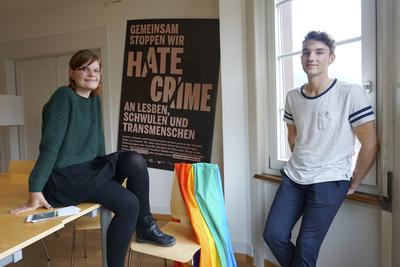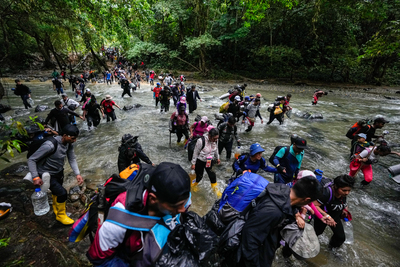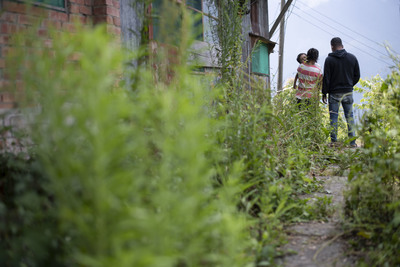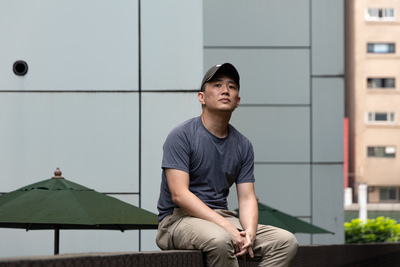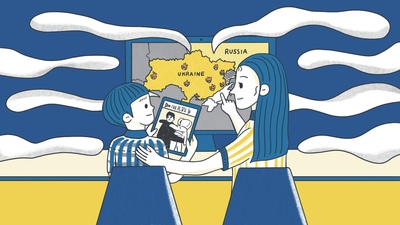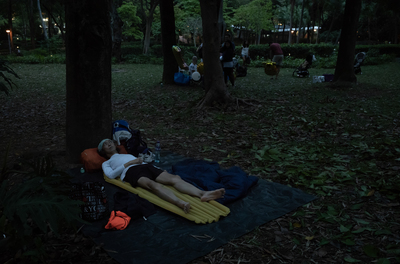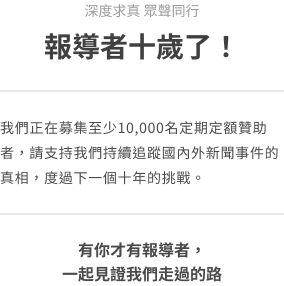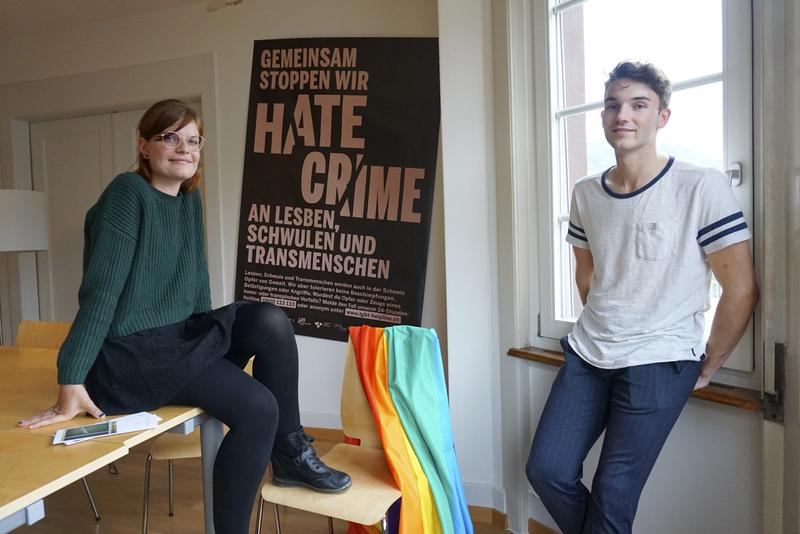
In Taiwan, sex is one of the most challenging topics in education. How can we prepare the next generation for pluralistic gender identities and a world that increasingly accepts gender diversity? In Switzerland, volunteers help teachers answer these difficult questions and help students overcome misconceptions.
In the Swiss capital of Bern, primary and secondary schools have a routine activity that one school calls "Sexy Days". The days are meant to prepare children for their own coming of age, and help them grow into adults that are mindful of diversity and don't discriminate against others based on their sexual orientation.
Teachers invite gay, bisexual and transgender volunteers to meet their students face to face and let them tell their stories. A group of activists called ABQ has organized such meetings now for twenty years.
"It is about two things: one is experiencing what it feels like to be different and the other is the feeling of being in love," said Hélène Fournier, a veterinary student who is the group's 26-year-old president. Over the past six years, she has often accepted invitations from schools to meet children in primary and secondary schools.
Before and during puberty, children's discussions of sexual organs often laugh and joke. But during their meetings, that doesn't happen, said Fournier, because the volunteers show that there's a serious side to juvenile heckling. Volunteers discuss the harm that can come of it.
Hate speech against homosexuals has been prosecuted and punished with penalties up to three years of prison. Switzerland has not yet introduced marriage equality.
That is in stark contrast with Taiwan, where marriage equality was formally introduced last year, but discrimination remains deeply rooted in some parts of society. In fact, local groups doing work that is similar to ABQ are getting fewer opportunities to work at schools.
The number of schools that have invited the Taiwan LGBQ Hotline Association(台灣同志諮詢熱線協會) for similar workshops on gender and sexuality issues has fallen sharply from 697 in 2014 to 193 in 2018, according to the association.
The leader of the educational program, Cheng Chi-wei explained this was due to pressure by conservative activists, including Christian religious organizations and conservative politicians, who have been mobilizing their members to stop the pasings of the same-sex marriage bill in Taiwan's parliament last year. For them, schools are a key battleground, where public opinion could be swayed.
These groups lobby city councils and parents, asking them to push schools to stop such meetings. “They spread messages on social platforms that if your children meet homosexuals they will become one,” Cheng said.
These conservatives groups are winning the fight, said Cheng. Principles and teachers were under pressure, or sometimes even sued because they tried to include LGBTIQ issues and gender equality in curricula. At the same time, these groups are increasing their own outreach offering their own sex education program which activists say risk to worsen stigma around sexual orientation, or just to encourage students only have sex after marriage.
The number those these conservative events has doubled in the same period. Last year, for every LGBTIQ event, there were seven conservative gatherings at Taiwanese schools, according to Fang Jun-zhu, an independent investigative journalist on sex-equality issues in Taiwan.

At ABQ's school workshops, the first exercise is one that teaches students what discrimination can feel like.
Fournier has children split into groups based on shared characteristics. Children whose hair is fair are asked to stand on one side of the classroom and dark-haired children are told to stand on the other. She divides them based on eye colour, whether or not they ride a bicycle to school and depending on how many family members they have, etc.
Fournier recalled that one time she asked students if they had ever felt lonely as part of the game. Only one boy proudly claimed that he had never felt so, but ended up standing apart from the rest of the group. The whole class burst into laughter. Embarrassed, he joined the other group, admitting that he had felt lonely at times.
In this game, everyone sooner or later ends up standing on the side of a minority. In the game, the children are supposed to practice tolerance and make the minority feel comfortable and respected. It also shows students that diversity is normal in a pluralistic society.
After understanding the concepts of "pluralism," "minority" and "equality", Fournier then addresses sexual identities. She asks students to write down what they know about diverse sexual identities then asks them to share and discuss each other's perceptions.
"These differences sometimes become their secrets from childhood" Fournier said, using her own experience as an example, telling children at first how much effort she put into keeping her sexual orientation a secret at their age.
The responses mirror how society, through the media, social media, and religion, constructs perceptions at a very early age. Children speak of YouTubers, slogans such as "Love is Love" and discuss the concept of sin in various religions.
But the children are often not sure about the meanings of those words; they were curious and wanted answers. "Some kids ask me how I know I'm a lesbian because I don't have short hair. Others ask what sex toys are and the way gay sex is done." Fournier said with a smile.
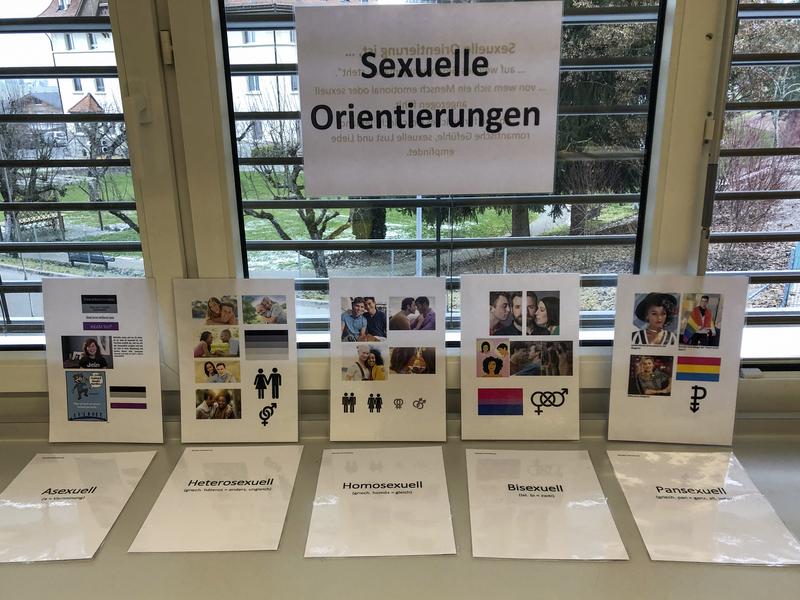
Then, Fournier uses a map of the world to discuss the global state of gender diversity. She shows them countries where homosexuality is outlawed and where it can be punished by death. She shows them places with marriage equality and advanced hate laws. "Most children are surprised that Switzerland is not really advanced," she said.
The international comparison serves to show children that incremental differences exist and that sexual rights need to be fought for to become a reality.
Then Fournier divides the class into smaller groups.
The smaller groups are paired with ABQ volunteers who share their life stories. They talk about their childhood and family background, share photos of their families and friends. The purpose is to let students know that there is not only one aspect of the living person in front of them, but every LGBTIQ, just like every living person, has a multifaceted identity that goes far beyond their sexual orientation.
Then talk about coming out, using the experience of their first love. "Everyone does something stupid the first time they're in love, and we start with that," said Fournier. The goal is to show students that LGBTIQ relationships and heterosexual relationships are the same. For high school students, falling in love is an attractive topic. Everything from confessions to first sexual experiences is often hotly debated.
"The kids are often moved because they don't expect us to share these things so honestly," said Fournier. The volunteers discuss their sadness, excitement, setbacks, moments of bravery and healing, things that they would often otherwise consider secrets.
These exchanges don't always go well. At one school, a conservative teacher lectured the class about the negative views of religious groups on homosexuality and listed various ways to "cure" homosexuality. ABQ had to cancel its training at the school.
On another occasion, when Fournier asked students to provide anonymous feedback, a student suggested that gays should be arrested and killed. She informed the school. A meeting with a social worker and the children’s parents was arranged. It turned out that a group of students had written the note merely to provoke outrage.
Overall, the vast majority of students have responded positively to the exchanges. They confided their own experiences, including on unrelated issues such as difficulties at school, or bias they have experienced as members of minorities.
As society and the media discuss more and more about LGBTIQ people, Fournier said that other minorities, such as disabled people and migrants, deserve the same work of sensibilitation in their regards.
“The best thing to do with children is to make them meet people who can tell their own stories,” she said.
深度求真 眾聲同行
獨立的精神,是自由思想的條件。獨立的媒體,才能守護公共領域,讓自由的討論和真相浮現。
在艱困的媒體環境,《報導者》堅持以非營利組織的模式投入公共領域的調查與深度報導。我們透過讀者的贊助支持來營運,不仰賴商業廣告置入,在獨立自主的前提下,穿梭在各項重要公共議題中。
今年是《報導者》成立十週年,請支持我們持續追蹤國內外新聞事件的真相,度過下一個十年的挑戰。

